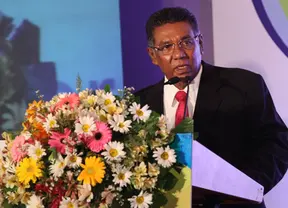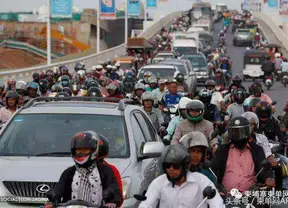
Emerging economies are being challenged by an external environment that is less supportive compared with pre-crisis period and internal factors are also making growth slower in many countries, said the IMF in a new research on Thursday.

While U.S. Federal Reserve's monetary path is oriented to the tightening side, most analysts believed Asian emerging economies will be quite well-positioned to deal with the market volatility caused by U.S. tapering of monetary stimulus.

The spillover effects on emerging markets caused by the tapering of U.S. quantitative easing (QE) could be varied from country to country, participants to the World Economic Forum (WEF)'s Davos meeting said Saturday.

The International Monetary Fund on Tuesday slightly raised its growth forecast for the world economy to 3.7 percent in 2014, 0.1 percentage point higher than its October projection.

China's Hong Kong defended its status as the world's freest economy for the 20th consecutive year, announced by the 2014 Index of Economic Freedom report on Tuesday.

China stands out as a star performer amid the slowdown in the world's emerging markets, with its economy showing increasing signs of picking up.

The lack of proper mid-term deficit cuts plan in the U.S. and Japan as well as the uncertain global environment and weak growth prospects put hurdles on global fiscal consolidation, said the International Monetary Fund (IMF) on Wednesday in a newly-released report.

High debt ratios amid weak growth in developed economies and emerging vulnerability in the developing world shadowed the global fiscal landscape, the International Monetary Fund said on Wednesday in its newly-released report.

The International Monetary Fund (IMF) on Tuesday lowered its forecast for global economic growth, saying the world economy has entered another transition with a set of challenges that call for new reform efforts.

On the obstacles to attaining the Bogor goal, Waller regarded as major obstacles some existing policy terms and concepts that some members still see themselves as separate sovereign economies, and consequent reluctance to readily open their markets to foreigners.

It’s important for the different regional architectures of economic cooperation in the Asia Pacific like TPP and RCEP to “potentially converge,” APEC Secretariat Executive Director Alan Bollard has said.

The important issues for all the economies in Asia-Pacific region now are structural reform and infrastructure, Professor Andrew MacIntyre, dean of the College of Asia & the Pacific at Australian National University (ANU), said in a recent interview with Asia Pacific Daily.

The growth of the global economy remain sluggish, despite a stronger than expected recovery in major advanced economies, the Organization for Economic Cooperation and Development said on Tuesday.

Switzerland tops the overall rankings of 148 economies in the Global Competitiveness Report 2013-2014, followed by Singapore and Finland, the World Economic Forum (WEF) announced Wednesday in Geneva.

The Washington-based International Monetary Fund (IMF) on Tuesday called on different countries to take appropriate reform measures to tackle their specific economic challenges against the backdrop of a three-speed recovery.